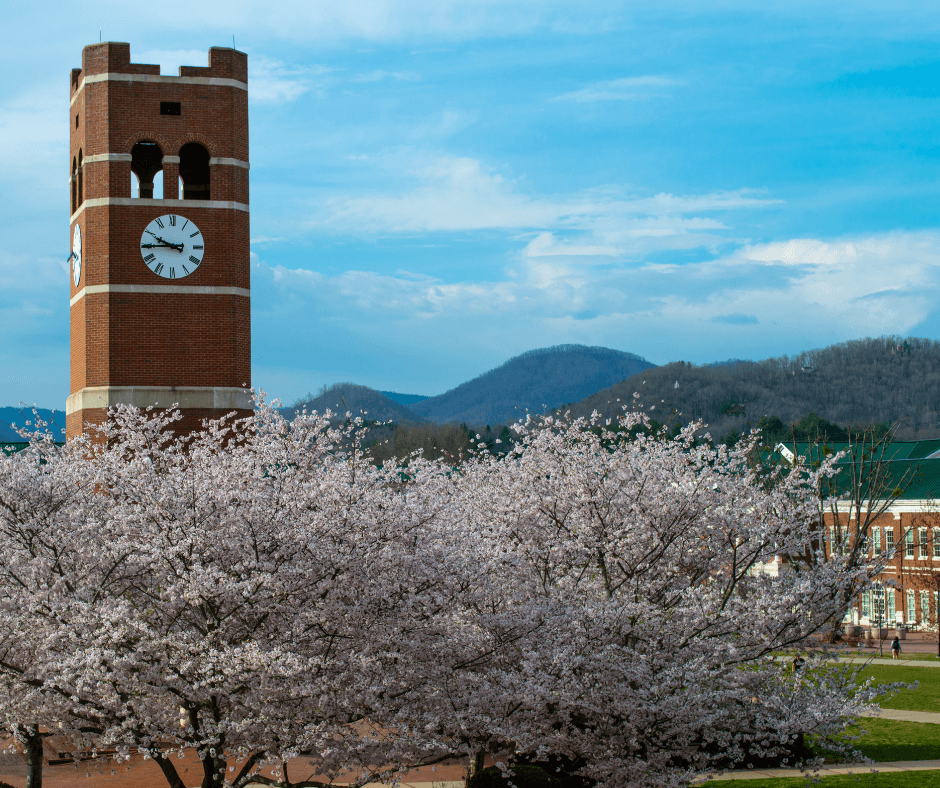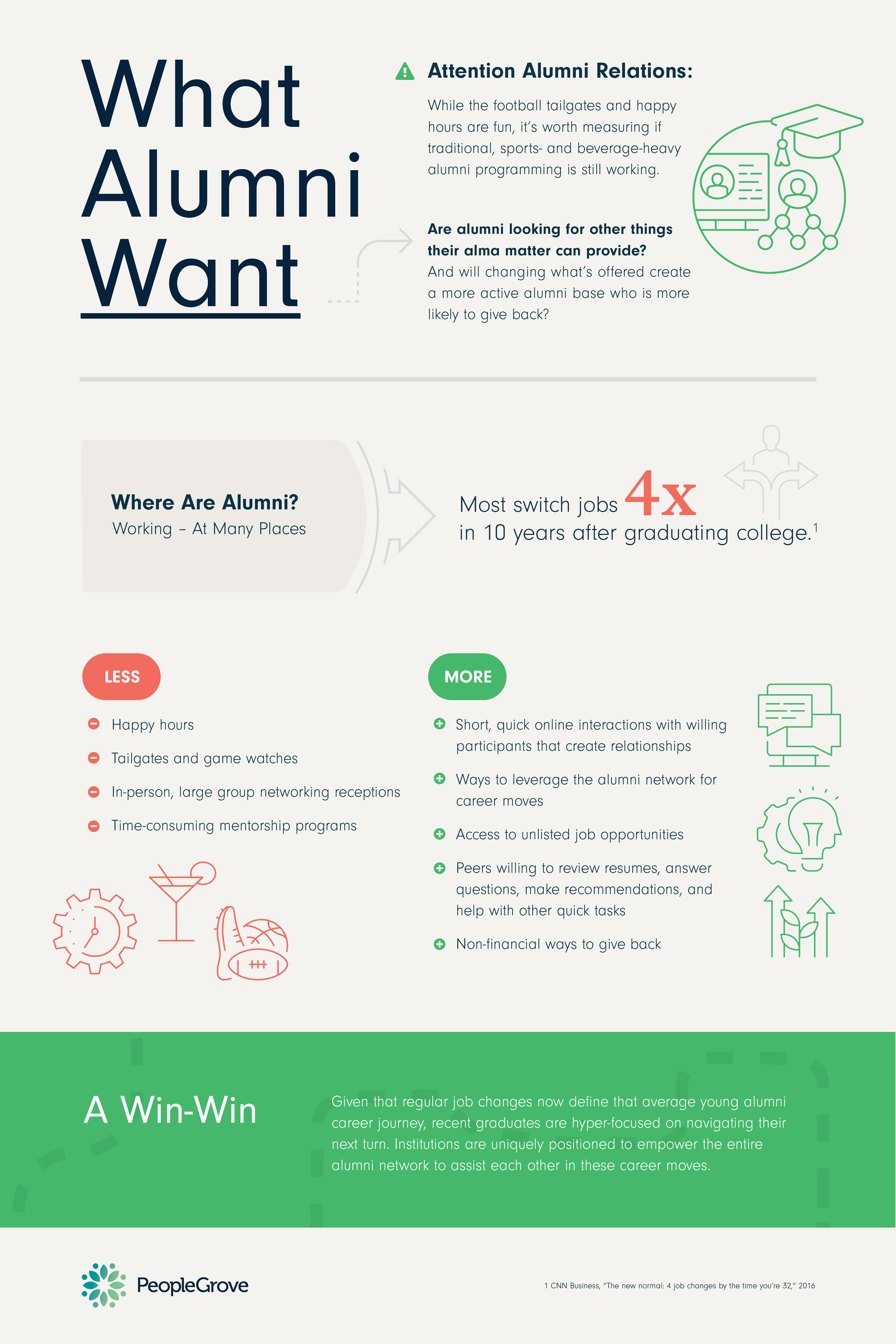Alumni & Advancement
From Seekers to Sharers And Back Again
How to Meet Alumni Needs While Providing A Space For Them To Give Back The Way They Want To “What […]
Alumni & Advancement
How to Meet Alumni Needs While Providing A Space For Them To Give Back The Way They Want To “What […]

“What can your alma mater do for you today?”
It’s a question that many institutions are starting to think more deeply about over the last two years. Some colleges and universities are even sending researchers and interviewers out into the field to ask this to alumni face-to-face.
The answers to this question can vary considerably. Some graduates have very specific ideas and may have even created a business plan for the new volunteer program they want to start. Some have never thought about it and may be amazed that their alma mater is even asking at all. And, if you ask any of these researchers about their interviews, you are sure to hear about the alumni who respond that they just want to be left alone.
Alumni relations has always been an industry based on attrition. How many graduates could you maintain a good connection with after they leave campus? It’s only natural for that number to decrease over time as alumni progress on their life journey.
Past alumni relations strategies have leaned into what made college fun in their attempt to keep graduates in the community. Happy hours, game watches, and other gatherings focused on the social aspects of college life. This general trend favored the larger schools where institutions made significant investments in the students’ social life. These alumni social activities were then seen as an extension of college itself. Successful sports programs also made a huge difference. The gamewatches for the #1 football team in the nation can certainly be a lot different than those for a school even just outside the Top 25.

Institutions also discovered that alumni wanted to have an impact on the future of their alma mater and the students coming behind them. They wanted to give their time and talent. Alumni Associations harnessed this through volunteer boards, governing bodies, and the ever popular student-alumni networking/mentoring program. In these roles, alumni were knowledge-sharers, bringing their expertise to the table for the benefit of the institution and the students following in their footsteps.
However, alumni relations can not escape the impact of an ever changing economic market. As tuition growth continues to outpace wage growth and job switching growing in popularity, graduates are looking for more career support from their university. What started as a gradual change, maybe a comment in a research interview here and there, suddenly became the #1 service alumni were asking for in survey after survey. Add to that the unpredictable events of the last two years, and an entire segment of the university community has gone from knowledge-sharers to knowledge-seekers.

On the surface, this shift seems daunting. Alumni relations is now responsible for continuing to educate thousands of learners who are looking to improve their careers. However, there is also an opportunity here to accomplish one of the more difficult feats in alumni relations — recapture someone who has drifted away.
To achieve this, alumni relations needs to focus on ways that alumni can accomplish their knowledge-seeker goal and then ensure that those alumni remain active as knowledge-sharers.
At PeopleGrove, we understand that each individual is seeking out an experience that fits their specific needs. Frankly, it’s something that is expected in all technology today. That’s why we’ve made personalization central to our platform experience. As alumni join the platform, the intuitive onboarding experience gathers insights not only on their background and passions, but also on their goals in engaging with the community. Those goals subsequently shape how each individual is guided through the platform.
Once their goal is achieved, they can then easily switch to a different experience and engage in a whole new way.
Imagine a recent graduate, someone only 3 years out of school. They’ve reached the ceiling of their entry-level job and no longer see growth potential at their current company. In deciding to make a change, they’ve joined PeopleGrove with the goal to explore their options. By indicating that fact, the platform immediately presents them with paths to explore and people to connect with. This alum quickly discovers that a career shift into politics fits their passions, reaches out to the other amazing alumni living in Washington DC, and all sorts of doors fly wide open.
This is clearly someone that an alumni relations team would want to keep tabs on and continue to engage. Because of this university resource, they matched their passions and their career and are likely incredibly grateful to their alma mater. In the old world, the university would put that person’s name on a spreadsheet, wait until they were needed, and then reach out to serve on a panel or maybe be a guest speaker. But that ask might not come for 6 months or more.
With PeopleGrove, the grateful alum simply switches their status and sees a whole new experience. They are now a knowledge-sharer, making themselves available to others just behind them and will share their story through video, unique profile updates, and career communities. And when the time comes to make their next career move, it’s as easy as flipping a switch.
Every challenge also presents a tremendous opportunity. While not every student had a phenomenal social experience or was a super fan of the teams, every alumni needs to continue growing and evolving in their career. Scaling that type of career services was previously impossible, but now, by relying on personalized technology, alumni teams can ensure that their constituents are covered, regardless of whether they’re a seeker or a sharer.
For more on PeopleGrove’s Learner First Approach and why career outcomes are core to the new definition of student success, download our free E-Book.